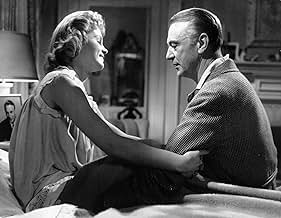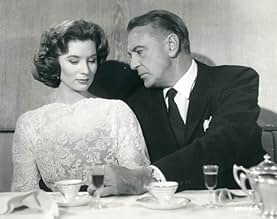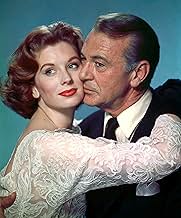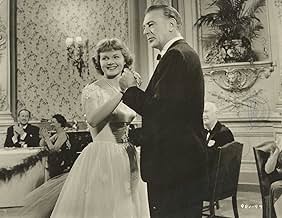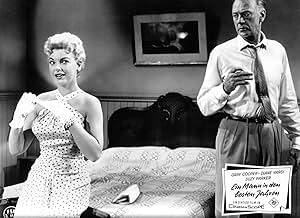John O'Hara's best selling novel, described by one critic as 'a brilliant portrait of the personal and political hypocrisy of mid-century America', has been adapted by one of cinema's finest screenplay writers Philip Dunne who also capably directs although he himself admitted that he had 'started directing too late'. Albeit truncated, this version apparently met with the approval of the author.
The political ambitions of leading character Joseph Chapin in the novel have been reduced here and Dunne has opted to develop a brief fling between middle-aged Chapin and Kate Drummond, a woman half his age, into a full blown romance. It must be said that the beautifully understated and sensitive playing of Gary Gooper and lovely Suzy Parker has resulted in one of the most moving and heartbreaking Spring/Autumn affairs ever committed to celluloid.
By all accounts Mr. Cooper jumped at the chance to play the part originally turned down by Spencer Tracy and would no doubt have identified with his character as he had earlier called off his relationship with Patricia Neal and returned to his wife who was hopefully more forgiving that his spouse in this, played by the superlative Geraldine Fitzgerald. There were also distinct echoes of Diane Varsi's own life in her role of Chapin's daughter, having come from a broken home and been twice divorced by the age of twenty one. This talented but fragile artiste suffered a breakdown during filming and was later to quit Fox studios as she felt she was 'heading for destruction'.
Great support from John Emery, Philip Ober, the ill-fated Tom Tully and the inimitable Barbara Nicholls as a party girl. There is a splendid score by Leigh Harline but the confounded Cinemascope format alas proves itself once again totally unsuited to intimacy. The phrase 'they don't make them like that anymore' is used to describe the character of Joe Chapin. It might just as easily refer to Gary Cooper.
The disillusionment, regret and sense of failure depicted here cannot fail to strike a chord with most of us and call to mind Whittier's 'Of all the sad words of tongue or pen, the saddest are these: it might have been.'

